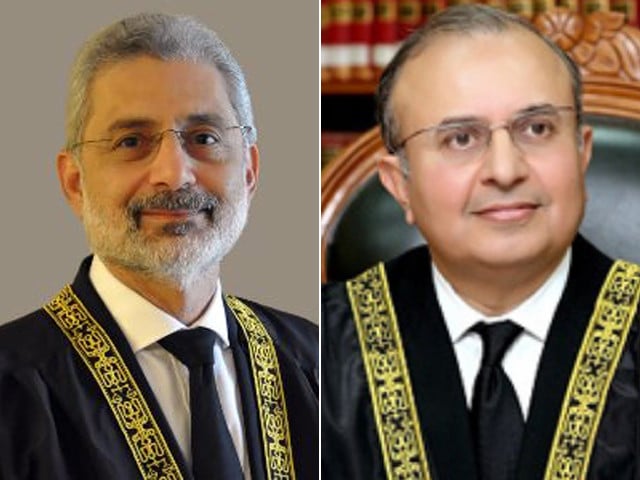
Chief Justice Qazi Faez Isa on Thursday responded to a letter from senior puisne judge Justice Mansoor Ali Shah pertaining to the Practice and Procedure Committee, citing 11 reasons for removing the second senior-most judge, Justice Munib Akhtar, from the three member panel.
In his letter to Justice Shah, chief justice Isa said that legally the senior puisne judge could not ask the chief justice who he should nominate as the third member of the committee, but added that he was giving the reasons at his [Justice Shah's] insistence.
On Monday, Justice Shah declined to attend a meeting of the Practice and Procedure Committee, which was reconstituted in the wake of the issuance of a presidential ordinance last week. In a letter to the committee secretary, he raised objections to the removal of Justice Akhtar from the committee.
The committee, constituted under the Supreme Court (Practice and Procedure) Act, originally comprised Chief Justice Isa, senior puisne judge Justice Shah, and second senior-most judge of the apex court Justice Akhtar.
However, the committee was reconstituted following the issuance of an amendment ordinance by President Asif Zardari last week. As a result, Justice Aminuddin Khan replaced Justice Munib Akhtar. However, Justice Shah stayed as the committee member.
Justice Shah wrote that he would not attend the committee meetings, until the ordinance was validated by the full court bench, or by the judges in a full court meeting on the administrative side, or the earlier committee was restored by the chief justice, which had included the second senior most judge.
"You question my changing the third member of the Committee and give me an ultimatum that until Justice Akhtar is again included in the Committee you will not participate in its meetings. With respect, what you demand is contrary to the law," Chief Justice Isa wrote to Justice Shah.
"Legally you also cannot question who I may nominate as the third member of the Committee, however, since I have always advocated accountability and transparency I shall provide reasons why Justice Akhtar has been replaced," he added. "I do because of your insistence, lest someone takes umbrage."
The letter then narrated 11 reasons why Justice Munib Akhtar was excluded. It said (1) Justice Akhtar had ardently opposed the Practice and Procedure Act, which had also removed the dominance of the chief justice over the Supreme Court.
The letter said that (2) Justice Akhtar was one of two judges who availed of full summer vacations; indifferent to the piling backlog of cases, (3) while on vacations and not available to do court work, he insisted on participating in the committee meetings, suggesting his lack of trust in the next senior judge.
According to the letter, (4) the Practice and Procedure Act stipulates that urgent cases are to be fixed within 14 days but this statutory provision and the constitutional right to seek review was negated by his [Justice Akhtar] refusal to hear urgent constitutional cases while he was vacationing.
The chief justice further wrote that (5) disrespecting his seniors [the ad hoc judges], Justice Akhtar selected 1,100 specific cases and confined them to hear only those cases, which was something wholly unprecedented.
Another reason was (6) not allowing ad hoc judges to be part of the Shariat Appellate Bench of the apex court to hear the long pending cases and (7) stating that the other ad hoc judge must do 'chamber work' till his distinguished colleague returned from leave on account of a bereavement in his family.
Furthermore, the letter cited (8) his display of rude and unreasonable behaviour towards a distinguished member of the committee also comprising of all the chief justices, senior puisne judges, members of the bar, and walking out of the meeting.
The chief justice's letter stated that (9) the bench headed by Justice Akhtar adjourned most cases and often finished work before 11 am; a concern expressed by his companion Judges; and (10) issued stay orders in respect of matters wherein reference was made to him, as in the audio-leaks case.
The chief justice further said that (11) while being quick in granting injunctive relief in important constitutional cases, Justice Akhtar did not hear those cases decided them, including the two cases mentioned in the letter.
The chief justice told Justice Shah that he, without ascertaining the facts, alleged that he [the chief justice] had bypassed Justice Yahya Afridithe next senior judgein the choice of the third member. "If anyone did not want Justice Afridi on the Committee it was Justice Akhtar," he said.
He explained that when the committee was scheduled to meet on September 20, he reached out to Justice Afridi but learnt that he was not available, therefore, he requested Justice Aminuddin Khan, who cancelled his visit to Lahore for the committee meeting.
"Later, you conveyed to the Registrar (not to me or my office) that you had another commitment. The meeting was adjourned due to your non-availability. But, two days afterwards, you decided not to participate at all unless I give in to your ultimatums," the chief justice wrote.
"Anyways, yesterday in front of you I asked Justice Afridi and he said that he did not want to be on the Committee. Another absurd allegation levelled against me is that of 'cherry-picking and undemocratic display of one-man-show'. Your tiresome clichés do not controvert facts."
The chief justice stated that he had no desire to list what had been achieved but to stem a false narrative, which had been taken into the public domain, "you compel me to do so". He then mentioned 14 major achievements since his becoming the chief justice.
Those included full Court meetings after a hiatus of four years, streamlining the process for the issuance of cause lists, hearing and decisions of several important cases, including Bhutto case reference, and elections case, appointment of all judges of the Supreme Court and others.
"When all this is achieved your comment that the country is in the midst of a 'constitutional crises' perturbs me. It is also inappropriate for a Judge to say something which undermines political, economic and financial stability. What purpose, if I may ask, is served by this comment," he asked.
The chief justice emphasised the law empowered him to nominate any judge of the Supreme Court on the committee and he exercised his discretion. Adding, however, that "you do not seem to consider our other distinguished colleagues" as equal to the task.
The chief justice expressed the hope that Justice Shah would consider the matter objectively and return to committee. "Let each and every one of us play our part in the early disposal of accumulated cases," the chief justice concluded.



1727419152-0/BeFunky-collage-(18)1727419152-0-165x106.webp)


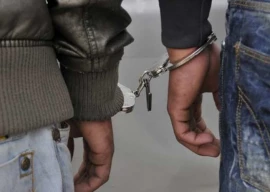
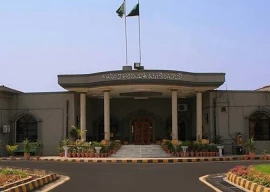

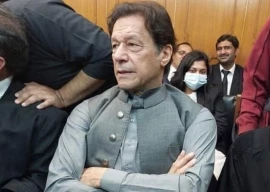
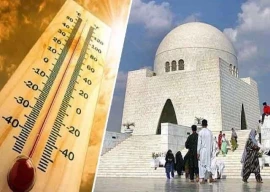
1727413552-0/Copy-of-Untitled-(42)1727413552-0-270x192.webp)






COMMENTS
Comments are moderated and generally will be posted if they are on-topic and not abusive.
For more information, please see our Comments FAQ